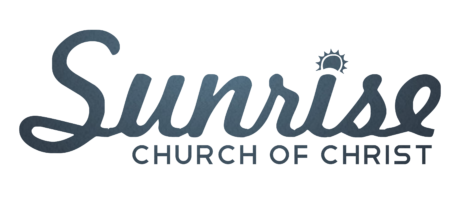What’s one of the few things that all Christians have in common? Perfect theology? Worship music preferences? Conservative political beliefs? We know the answer to those questions, but there is something we all have in common: we are sinners. In fact, we cannot even call ourselves Christians if we have not admitted our sinfulness and changed our minds to move from a self-focused life to one that is surrendered to God.
I must admit, however, that when someone hurts me (or, worse, hurts one of my family members), the first thing I do is forget about my own sinfulness. At that point, I seem to focus only on the other person’s faults. When I’m hurt, it’s not a bad thing to step back, evaluate the situation, and decide how to respond. But I can’t live in that place, and neither can you. Not if you want God’s best for your life.
If I only focus on my own pain and the other person’s faults, I forget about my sins and struggles and weaknesses and failures. You could say it’s easy for me to look better to myself than I really am. Even if I commit the same sin as another person, it doesn’t seem quite as bad when I do it. But here’s the deal: even if I’m more “right,” and even if the other person hurt me deeply and is completely at fault for causing my pain, I am not more moral than that person. Romans 3:23 makes this clear: “all have sinned and fall short of the glory of God.” As much as I don’t like to admit it sometimes, especially when someone hurts me or my family, I am part of the “all” who have sinned.
A key factor in my genuine repentance is acknowledging that I’m no better than anyone else. I have to admit who I really am in the eyes of God. I tend to compare myself to other people; sometimes I look pretty good. But other people are not the standard; God is. Of course I seem more moral than the person who hurt me or my family, but the standard of moral comparison is the not the person who hurt me; it’s God Himself.
What I really must do is forgive and show kindness to the people who hurt me, because it forces me to remember that they don’t deserve it, but neither do I. It helps me realize that person is not as bad as I make him out to be, and I’m not as good as I make myself out to be. The “worst” person on the face of the earth shares my humanity and needs the same Savior I need. With all of this in mind, I may even reach the point of forgiving that other person. Isn’t that what the second part of Colossians 3:13 is all about? “Forgive as the Lord forgave you.”
Troy Burns
